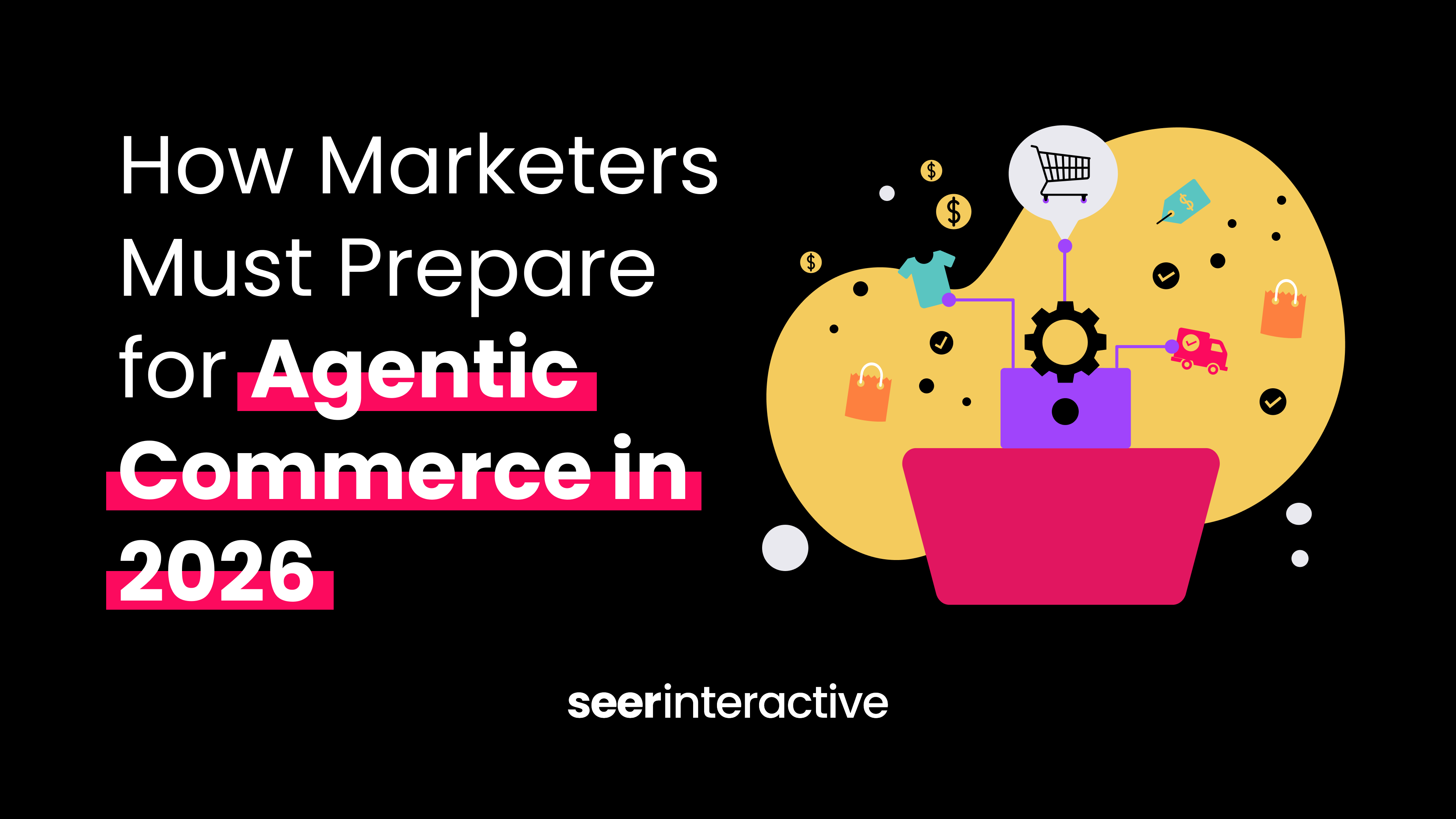Generative AI has become the BIG thing in digital marketing. It feels like you can’t escape it, and it’s here to stay. Generative AI is influencing everything from everyday operations to more complex content creation strategies and design work. Its role in modern SEO is invaluable, offering the ability to quickly produce high-quality, relevant content that provides a unique perspective to your customers. While there are concerns about AI replacing jobs, its primary function is to create efficiencies, allowing marketers to focus on more strategic, human-centered tasks.
Leveraging generative AI for an SEO-driven content strategy is particularly valuable for organizations facing the dual challenge of limited resources and high internal demand for content, as it supports various stakeholders by ensuring that products and services receive the necessary visibility and engagement across all content channels.
If you plan on using generative AI for content creation, there are a few areas to keep an eye on to produce the best content possible.
Implications of Using Generative AI for Content Creation
1. Duplicate Content
One significant risk of relying heavily on generative AI tools for content marketing and SEO is the unintentional creation of duplicate content. There is a small, but real risk of plagiarism if you blindly use AI-generated content. As these AI systems often pull from the same datasets and sources, there's a likelihood that the content generated could resemble existing material too closely, leading to redundancy. Search engines may impose SEO penalties for duplicate content, which can negatively affect a website's ranking and organic visibility.
To avoid these pitfalls, it’s crucial to implement strategies that ensure originality. One approach is to inject unique insights and perspectives from Subject Matter Experts (SMEs) into the AI-generated content, differentiating it from other similar pieces. This not only helps in standing out in search results but also enhances the overall user experience by providing valuable, distinct information to site visitors.
2. "Sea of Sameness" Content
A common issue with AI-generated content is the "sea of sameness," where similar content appears across all organic results within a Search Engine Result Page (SERP). This happens frequently as SEOs are optimizing content for similar targets and leaning on similar examples for inspiration. This homogeneity can lead to many search results on page one having almost identical structures and information. This may result in high rankings but offers little value to users. This is another area where SME insights can help your content stand out from the rest of the pack.
3. Inaccurate Information
AI technologies are still in the developmental stage. There is a risk of misinformation as the Large Language Models (LLMs) continue to improve. Blindly trusting AI-generated content can lead to inaccuracies and misleading information. Ensuring the accuracy of content is essential, particularly in SEO, where factual errors can harm a brand’s credibility and lead to a loss of trust among site visitors. There are a few ways to mitigate this risk:
- Include reputable references in the initial prompts to help give the tool parameters
- Prompt the tool to fact-check it’s own response and identify any inaccuracies
- All content should be reviewed by human editors before publishing
There are ways to avoid the above risks and set yourself up for success throughout the process of SEO content creation.
How to Incorporate AI into SEO Content Creation
1. Topic Ideation
Generative AI tools can be incredibly useful for brainstorming and generating new content ideas for SEO development, especially when it feels like all creative avenues have been exhausted. These tools can provide a fresh perspective and suggest topics that might not have been considered otherwise, acting as a starting point for further exploration. However, while AI can offer valuable inspiration, it's important to balance these suggestions with human creativity and market insights.
Combining AI-generated ideas with the nuanced understanding that humans bring ensures that the content is not only innovative but also relevant and aligned with current market trends and audience needs. Engaging in an iterative process with AI, can help you refine and expand through discussion and analysis, which can lead to more robust and effective content strategies. This can look like a simple conversation with a friend on Slack. You’ll be surprised at how conversational AI tools can be.
2. Outline Creation
Generative AI tools can be highly effective for creating structured outlines for content, streamlining the initial stages of content development. By quickly organizing research and information, AI helps in forming a solid framework around which content can be built. However, to maximize the effectiveness of these outlines, it's essential to ensure they align with SEO best practices and address the specific needs of the target audience. This involves highlighting key messages, understanding the personas for whom the content is intended, and incorporating relevant goals and objectives. Additionally, integrating keyword research into the outlines and specifying important links and citations can enhance SEO visibility, ensuring the content resonates with search engines and readers alike.
3. Leveraging Prompts to Start Copywriting
Leveraging AI prompts can be an effective way to kickstart the writing process, providing a foundation to build upon. Creating unique prompts will give you a strong first draft. Some elements to include are:
- Define who is creating the content. Are you a technical expert or an artist?
- Who the target audience is
- Clear instructions, including the goal of the content
- Sources that can be referenced
- Keyword targets
- Include an optimized outline, including headers
A prompt can be provided to set up the initial instructions and then individual prompts can be provided for each section of the page. This will help you refine content in smaller chunks while still following the general guidelines set at the beginning of your prompts. As a bonus, this can prevent duplicative and unoriginal content as each section is specifically tailored for the specific subject matter.
4. SME Review and Perspective
Incorporating a subject matter expert (SME) review is crucial for enhancing AI-generated content, whether it's a simple outline or fully drafted copy. SME insights add a unique layer of depth, differentiating the content from others and breaking the "sea of sameness" often found in AI outputs. By integrating the expertise and personal perspectives of SMEs, the content gains authenticity and authority, making it more credible and valuable to readers. Expert validation ensures that the information presented is accurate and trustworthy, thereby strengthening the overall quality and impact of the content.
Optimizing AI-Generated Content for SEO
Optimizing AI-generated content for search engines is necessary for the page to perform well in search rankings. Just like any other content, AI-generated pieces should adhere to standard SEO best practices. This includes strategically integrating keywords throughout the text while maintaining a natural flow, ensuring that the content doesn't sound forced or robotic.
Leveraging natural language processing can help achieve a more conversational tone that aligns with how users search for information. This is also where the human element comes in! Have an SEO expert, and maybe that is you, review the drafted page to integrate targeted keywords naturally into the content.
Balance Efficiency and Expertise
Generative AI is a powerful tool for boosting your SEO content strategy, but it works best when combined with human insight. To get the most out of AI, it's essential to keep an eye on originality, accuracy, and the overall quality of the content. By balancing AI's efficiency with your own expertise and creativity, you can create standout content that not only ranks well but truly connects with your audience. As you integrate AI into your workflow, remember that the human touch is what will ultimately set your content apart.

.png)
